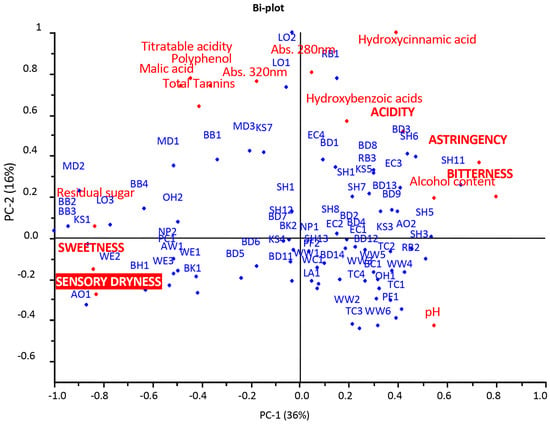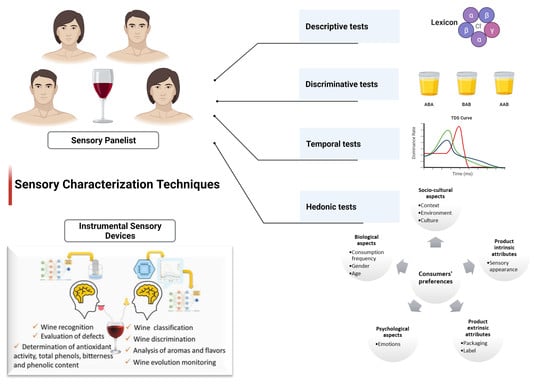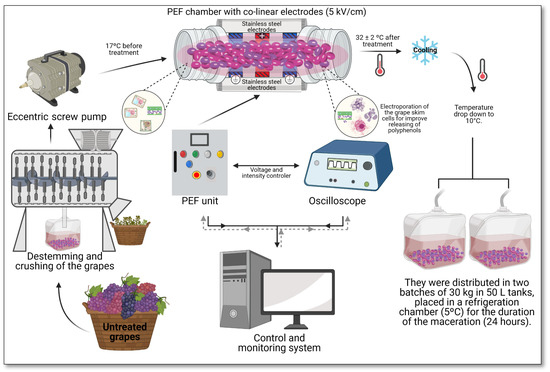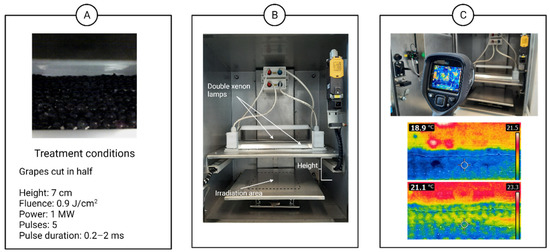Innovative Sensory, Chemosensory, and Chemical Techniques in Beverages Quality
A topical collection in Foods (ISSN 2304-8158). This collection belongs to the section "Drinks and Liquid Nutrition".
Viewed by 27901Editor
Interests: wine microbiology; volatile acidity bio-reduction; food sensory evaluation; wine sensory evaluation
Special Issues, Collections and Topics in MDPI journals
Topical Collection Information
Dear Colleagues,
The changes in society in recent years have radically modified the beverage industry by combining the concept of globalization with the revaluation of local production. Besides, many alcoholic and non-alcoholic beverages are now seen as a vehicle of healthy constituents such as probiotics, prebiotics, vitamins, and energy boosters. Besides, the COVID pandemic is showing that we must take care of ourselves and the phrase “let the food be your medicine”, can also be applied to the world of beverage products.
Consumers worldwide are also changing their behavior when deciding what to eat and drink. This change includes consumers’ “willing to pay”, a decision based upon how well the product satisfy their needs, not only sensorially but also in terms of health benefits and nutritional value. Moreover, in the digital age with ubiquitous connectivity, peer-to-peer networking, engagement, immersion, and content creation, consumers can shape and be shaped by this new digital culture. The advertising industry is persistently exploiting the special relationship that consumers have with new media, with online campaigns that create unparalleled relationships between them and the brands that surround them.
Modern beverage industries must produce high-quality products, with expected levels of health-promoting compounds, pleasant to drink, and, at the same time, to minimize the risk of potentially harmful ingredients such as sulfites and other allergenic preservatives, heavy metals, mycotoxins, and additional potentially hazard compounds.
To complement all these requirements the beverage industry must employ laboratory techniques where speed is imperative. Technology solutions must require fewer samples or, non-destructive techniques. They must provide quick answers, to allow the operator to decide quickly about further steps to control or release the product to market. Sensors and the related data modeling, which allows the "measure", are evolving to meet the needs of the beverage sector.
Designing a sensory quality control program is also fundamental. This allows to maintain proficiency testing of sensory panels, use innovative sensory methods that permit establishing product sensory specifications. Also, the development of alternative instrumental techniques or devices able to overcome the limitations of the human senses has become an attractive topic for the beverage industry. The development of these instruments - e-noses, tongues - is based on their ability to mimic the human sensory response, which is strongly dependent on the many biological mechanisms involved from the stimulus to their corresponding interpretation.
This Special Issue includes innovative studies aiming to address beverage industry challenges not only in terms of product quality but, also, in terms of sensory science-development, instrumental analysis, sensors, and digital engagement.
Prof. Dr. Alice Vilela
Guest Editor
Manuscript Submission Information
Manuscripts should be submitted online at www.mdpi.com by registering and logging in to this website. Once you are registered, click here to go to the submission form. Manuscripts can be submitted until the deadline. All submissions that pass pre-check are peer-reviewed. Accepted papers will be published continuously in the journal (as soon as accepted) and will be listed together on the collection website. Research articles, review articles as well as short communications are invited. For planned papers, a title and short abstract (about 100 words) can be sent to the Editorial Office for announcement on this website.
Submitted manuscripts should not have been published previously, nor be under consideration for publication elsewhere (except conference proceedings papers). All manuscripts are thoroughly refereed through a single-blind peer-review process. A guide for authors and other relevant information for submission of manuscripts is available on the Instructions for Authors page. Foods is an international peer-reviewed open access semimonthly journal published by MDPI.
Please visit the Instructions for Authors page before submitting a manuscript. The Article Processing Charge (APC) for publication in this open access journal is 2900 CHF (Swiss Francs). Submitted papers should be well formatted and use good English. Authors may use MDPI's English editing service prior to publication or during author revisions.
Keywords
- beverages aroma and flavor
- beverage innovation
- sensory perception
- sensory methodologies
- consumer´s choice
- beverage consumers immersion in the digital era
- sensor techniques
- new approaches to data treatment
- new approaches to chemometric tools
- new approaches to chemosensory tools
- flavor authenticity and human health











